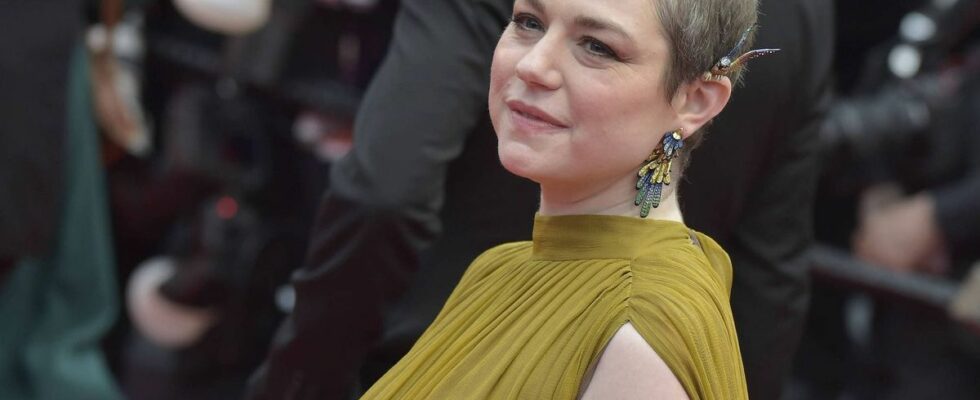Published on
Updated
Reading 2 min.
The Belgian actress walked the steps of the Cannes Film Festival on Tuesday, 25 years after Rosetta which won the Palme d’Or for the Dardenne brothers and especially a month after announcing her complete remission from a rare cancer.
Emilie Dequenne: “For me, it was symbolic to be at the Cannes Film Festival”
Reviewing the images for his acting prize at Cannes in 1999 on the set of the show C à vous, she burst into tears. “It’s stupid, I’ve seen it plenty of timesshe explained, between two sobs. It’s just that what happened twenty-five years ago was a shock to my family and what happened twenty-five years later was a shock to my family. So, obviously, it goes the other way.“. It was important for her to be in Cannes, after almost a year of treatment and an operation. She wanted to send a message of hope and courage to all those fighting against cancer. If she is in remission, however, she remains “very closely monitored”.
Last April, she announced that she was in complete remission from cancer that she had been battling for several months. Last October, the young woman announced that she was suffering from adrenocortical tumor.
What is adrenocorticaloma, the rare cancer from which the actress suffered?
Adrenocorticaloma is not a common form of cancer: it affects one to two people in a million per year in the kidney area.
“An adrenocorticaloma is a tumor that develops in the adrenal gland, specifically in the cortical layer of this gland. The adrenal gland is located above each kidney and is responsible for producing various hormones, including corticosteroid hormones such as cortisol. It is therefore an endocrine tumor” explains Dr. Gérald Kierzek, medical director of Doctissimo.
In the case of an adrenocorticaloma, the tumor thus originates from the cells of the cortical layer of the adrenal gland, which can lead to excessive production of corticosteroid hormones, in particular cortisol. This can lead to a variety of symptoms, including high blood pressure, weight gain, thin and fragile skin, bruising easily, muscle weakness, trouble sleeping, and other problems.
“Diagnosis of adrenocortical carcinoma often involves hormonal tests to measure hormone levels in the blood and medical imaging, such as CT scan (CT) or magnetic resonance imaging (MRI), to locate and evaluate the tumor” continues our expert.
Treatment may involve surgery to remove the tumor, as well as other therapies to regulate hormone levels and manage symptoms.
As explained by the Gustave Roussy hospital, the establishment which followed Emilie Dequenne in her fight, “Initial management of an adrenocortical carcinoma in an expert center is recommended because obtaining complete cancer resection of the tumor is one of the main prognostic factors.
